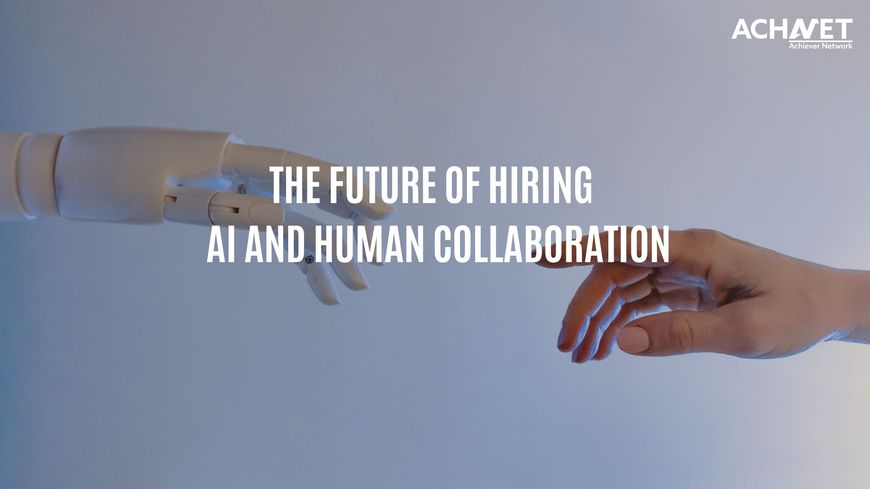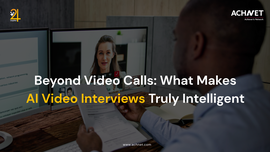What’s in Store for The Future of Hiring? - AI and Human Collaboration
In an era where technology continues to evolve at a rapid pace, the hiring process is undergoing significant transformations. Artificial Intelligence (AI) has become a powerful tool in recruitment, streamlining processes and providing deeper insights into candidate capabilities. Sure, AI offers immense advantages, but the future of hiring will not be dictated by replacing human recruiters. Instead, it would revolve around creating a collaborative environment where AI and humans work in tandem.
Are you fully utilizing AI in your talent search?
Take the AI Hiring Efficiency quiz to measure your current approach and achieve greater hiring efficiency!
The Evolution of AI in Hiring
Over the past decade, AI has advanced from simple automation tools to complex systems capable of evaluating candidates through assessments, screening resumes, and conducting initial interviews. AI-driven tools can analyze vast amounts of data swiftly, identifying patterns and predicting candidate success based on previous performance indicators.
However, the real power of AI is not just its efficiency but its ability to enhance human decision-making. With AI handling repetitive tasks like resume screening or scheduling, recruiters can focus on more strategic, human-centered activities like interviewing, assessing cultural fit, and building relationships with candidates.
Enhancing Recruitment Efficiency and Accuracy
AI’s strength lies in its ability to reduce human error and improve efficiency. Traditional recruitment is more often time-consuming, and demands recruiters to sift through scores of resumes and conducting multiple interview rounds. AI shortens these cycles by automating tasks, providing real-time assessments, and narrowing down applicant pools to only the most qualified candidates.
AI also brings accuracy to hiring decisions. Through data-driven analysis, AI systems can predict which candidates are most likely to succeed in a given role. These systems analyze skills, experience, and even personality traits to match candidates with job requirements more effectively.
The Essential Role of Human Oversight
While AI offers clear advantages, human oversight remains crucial to its success. Algorithms are only as good as the data they are trained on, and without proper checks, biases can be embedded into the system. This is why the human element is essential—recruiters must oversee AI outputs, ensure data accuracy, and identify potential biases in the hiring process.
Human recruiters bring empathy, intuition, and context-awareness that AI cannot replicate. They can assess candidates holistically, considering not just technical skills but also emotional intelligence, adaptability, and cultural fit. Human touch is thus vital to create an inclusive and diverse workplace, and ensures that candidates are evaluated fairly and without bias.
The Future Landscape of AI-Driven Hiring
The future of hiring lies in a balanced approach where AI and human recruiters work together. AI will continue to evolve, with tools becoming more sophisticated in predicting candidate success and automating routine processes. Meanwhile, human recruiters will focus on the strategic and interpersonal aspects of recruitment, using AI insights to make informed, unbiased decisions.
As organizations continue to adopt AI, the focus should be on integrating technology without losing the human touch. Companies must invest in training recruiters to work alongside AI tools, emphasizing the value of diversity, inclusion, and ethical hiring practices.
In the end, AI is not here to replace recruiters but to empower them. By leveraging AI’s capabilities while maintaining human oversight, the recruitment industry can achieve the best of both worlds: efficiency, precision, and a human-centered approach that drives long-term success.





